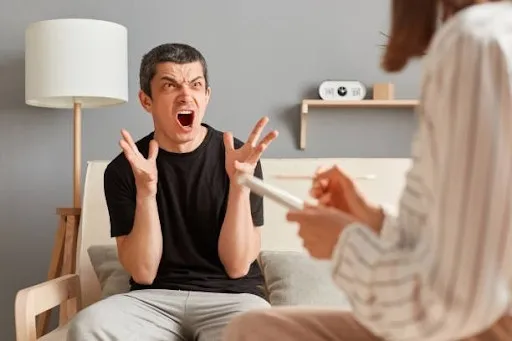Ever feel “off” but can’t explain why? Like you’re tired all the time, zoning out in conversations, or worrying way more than you let on?
You’re not alone, and you’re not overreacting.
Many people live with common mental health issues that are never talked about. Some are dismissed as “just stress.” Others hide behind a smile.
According to the World Health Organization, more than 1 in 8 people live with a mental disorder, and millions go undiagnosed because their symptoms don’t look “serious enough.”
This article explores 7 mental health struggles people often hide, so you can spot the signs in yourself or someone you love.
Here Are 7 Common Mental Health Issues People Don’t Talk About
1. High-Functioning Anxiety: When You Look Fine but Feel Stressed All the Time
You get things done. You show up for work. You smile when people talk to you.
But inside? You feel nervous, restless, and always “on.”
That’s called high-functioning anxiety, and most people never talk about it.
It’s one of those mental health issues people ignore, because from the outside, you seem totally okay.
You might:
Overthink everything
Feel tense even when nothing’s wrong
Worry about what people think of you
Push yourself too hard, then feel burned out
Studies show 30% of adults live with anxiety, but many hide it behind success or a busy routine.
It’s real. And it deserves attention, even if no one sees it.
2. Dysthymia: That “Low but Not Depressed” Feeling That Stays for Years
You’re not crying all the time. You get through the day. But something still feels off.
Maybe you feel tired all the time. You don’t enjoy things like you used to. You’re not sad, exactly, just kind of... flat.
That could be dysthymia, also called persistent depressive disorder.
It’s a quiet kind of depression that can last for years without you even realising it.
You might notice:
Low energy or motivation
Feeling “numb” or disconnected
Getting irritated easily
Thinking, “Maybe this is just how I am”
Research shows that dysthymia affects nearly 1.5% of U.S. adults each year, but it often goes untreated because people don’t think it’s serious enough.
3. Burnout That Looks Like Laziness
You wake up tired. You can’t focus. Simple tasks feel like a mountain.
People might say you’re being lazy, but what if you’re actually burned out?
Burnout isn’t just for people with 9-to-5 jobs.
It can happen to students, stay-at-home parents, caregivers, and anyone who feels constantly overwhelmed with no break.
Signs of hidden burnout:
You feel emotionally drained
You avoid things you used to care about
You feel guilty for not “doing enough”
You crash at the end of every day, even when you didn’t do much
A 2022 report found that 77% of people have experienced burnout, but most don’t realise it until their body or mind forces them to stop.
4. Social Withdrawal That Isn’t Just “Introversion”
Everyone needs alone time. But if you’re pulling away from people more than usual, and not because it feels good, it could be a sign of something deeper.
You might notice:
Feeling drained after simple conversations
Avoiding friends, even the ones you love
Not wanting to “explain yourself” to anyone
Feeling like no one would understand anyway
Research after COVID-19 showed a sharp rise in social withdrawal, especially among teens and young adults, and many still haven’t bounced back.
5. Health Anxiety That Isn’t Just “Overthinking”
Do you constantly worry that something’s wrong with your body, even when the doctor says you’re fine?
That could be health anxiety.
It’s more than just Googling symptoms. It’s the fear that every small ache or change means something serious.
People often brush it off as “just stress” or being dramatic, but it can quietly take over your life.
Signs of hidden health anxiety:
Checking your body for symptoms over and over
Constantly researching diseases online
Reassurance from others never feels like enough
Skipping things you enjoy because of fear
Around 5–10% of people struggle with health anxiety, but many go untreated because they’re afraid of being judged or not taken seriously.
6. Emotional Numbness That Feels Like Nothing at All
You’re not sad. You’re not angry. You’re just... blank.
Emotional numbness is when you stop feeling much of anything, good or bad.
You go through the motions, but life feels distant, like you’re watching it from the outside.
You might:
Avoid deep conversations
Feel like you're just “existing,” not living
Use distractions (scrolling, TV, food) to feel something
Studies show emotional numbness is common in people dealing with long-term stress or trauma, especially those who never got the chance to heal properly.
7. Quiet Panic Attacks and Nighttime Anxiety
Not every panic attack looks like what you see in movies. Some are quiet. Sneaky. You might be lying in bed, brushing your teeth, or just sitting there, and out of nowhere, your chest tightens, your heart starts racing, and your thoughts take off like wildfire.
You don’t always realize it’s anxiety; it just feels like something’s off. Like a wave of dread hits you for no good reason.
These moments? They're real. They're called quiet panic attacks or nighttime anxiety, and way more people deal with them than you might think.;
Here’s what it can feel like:
A sudden “off” feeling, like something bad is coming, even if you don’t know what
Your brain won’t stop spinning the moment it’s finally quiet
And here's the thing: over 40 million adults in the U.S. live with some form of anxiety. A lot of them say it gets worse at night, not because anything bad is happening, but because it’s quiet, and their brain finally has space to shout.
Need Help from a Psychologist?
If any of this hits close to home, please hear this: you’re not alone. You’re not weak. And you’re definitely not “too much.”
A lot of us carry heavy stuff quietly, thinking we should just “deal with it.” At PsychiCare, we make it easy to connect with a licensed therapist who gets you. No awkward office visits. No pressure to “have it all figured out.” Just honest support, in a safe space, from someone who genuinely cares.
You don’t have to do this alone, and you don’t have to wait until it gets worse. We’re here when you’re ready.
Final Thought
Sometimes mental health struggles don’t shout. They whisper.
They show up as exhaustion you can’t explain. That quiet feeling of being disconnected, even around people you love. Or that smile you wear like armor, even when you’re barely holding it together inside.
You don’t need to hit rock bottom to ask for help.
In fact, studies show people often wait 11 years after symptoms begin before getting proper mental health support.
That’s 11 years too long. Whether you're dealing with anxiety, low mood, emotional numbness, or something you can’t quite name, your feelings are valid.
And you don’t have to hide them anymore.
लेखक





